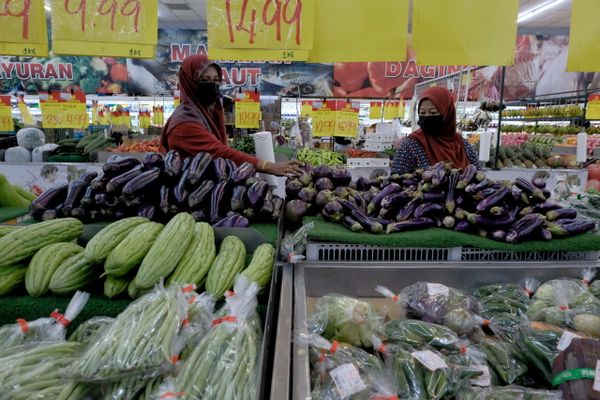KUALA LUMPUR, Oct 24 — The Domestic Trade and Cost of Living Ministry (KPDN) said that 80 types of fresh produce saw price reductions as the Malaysian ringgit strengthened between late July and September.
However, KPDN reported that 72 items in the same category experienced price increases during the same period.
The ministry clarified that tomatoes were among the items with the lowest price reductions, while the highest price increase was for cauliflower.
“For dry goods, packaged items, baby products, hygiene products, and beverages, prices remained more stable, with average increases and decreases of less than 10 per cent,” said KPDN in a written response published on the Parliament website.
The response addressed a question from Sim Tze Tzin (PH-Bayan Baru) regarding why prices rose when the ringgit was weak but did not drop after it strengthened again and what actions KPDN would take to lower prices after the ringgit’s recovery.
KPDN explained that price fluctuations are common in countries with open market economies like Malaysia. However, it is essential to ensure price stability and prevent sudden changes in the cost of goods.
To maintain price stability, KPDN has implemented several initiatives, including controlling subsidised and non-subsidised goods, the Maximum Price Scheme during festive seasons (SHMMP), and the 2.0 Subsidised Diesel Control System (SKDS 2.0).
In response to another inquiry, KPDN stated that it is not necessary to establish a government-owned convenience store network focused on selling essential goods at affordable prices.
The government is currently prioritising the implementation of the Payung Rahmah Madani initiative through the Rahmah Madani Sales, Rahmah Menu, Rahmah Package, and Rahmah Basket programmes. These programmes aim to mitigate the impact of rising prices and reduce the cost of living pressures.
KPDN is also committed to enhancing Rahmah Madani Sales to enable more low-income individuals to access essential goods at affordable prices.
“As of October 7, 2024, KPDN has implemented Rahmah Madani Sales, offering essential items at prices 10 to 30 per cent lower than market rates at 7,965 locations nationwide, benefiting 7.04 million people,” the ministry noted.
This explanation was in response to a question from Riduan Rubin (Independent-Tenom), who enquired whether KPDN plans to establish a government-owned convenience store network selling essential goods at affordable prices.
— Bernama




